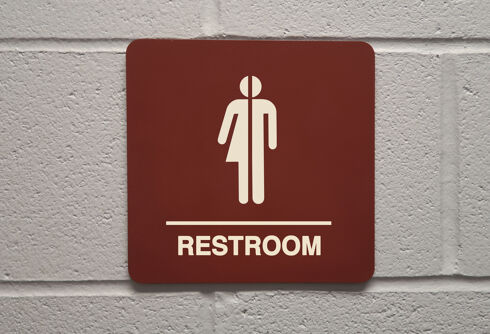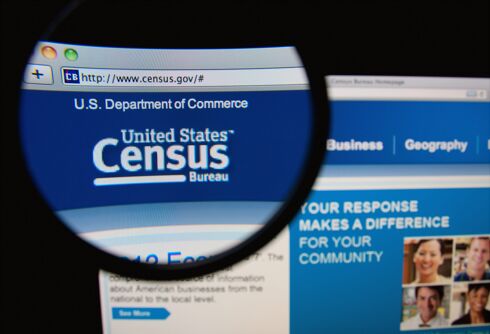The Republican National Convention gets down to business today in Tampa, Fla., where delegates are expected to overwhelmingly pass the Republican Party platform that is unequivocally against marriage for gay and lesbian couples. Despite that, could 2012 turn out to be the year of marriage equality?
A look at the political landscape, across the globe and the United States, is trending toward marriage equality.
France almost certain to legalize marriage equality this year
Over the weekend, French Prime Minister Jean-Marc Ayrault told the media that the new Socialist government would introduce legislation this fall that would legalize marriage for gay and lesbian couples. François Hollande, France’s new president, had made marriage equality one of his election promises.
 “In October, we will send a bill to the National Assembly and the Senate to allow same-sex couples to marry,” French Prime Minister Jean-Marc Ayrault told the media.
“In October, we will send a bill to the National Assembly and the Senate to allow same-sex couples to marry,” French Prime Minister Jean-Marc Ayrault told the media.
Never Miss a Beat
Subscribe to our newsletter to stay ahead of the latest LGBTQ+ political news and insights.
With progressives in charge in France’s National Assembly and Senate, the legislation is expected to sail through procedures to passage. If accomplished, France will join Belgium, Denmark, Iceland, Netherlands, Norway, Portugal, Spain and Sweden in legalizing marriage for gays and lesbian couples. Argentina, Canada, South Africa and Mexico City also permit same-sex marriage.
New Zealand to vote this week on marriage equality
This week, New Zealand lawmakers will debate a marriage-equality bill and it is expected to pass on first reading, according to media in that island nation about 900 miles east of Australia.
The 14-member Green Party is lining up in support of the bill, and most of the Labour Party’s 34 MPs are expected to approve the bill. The conservative National Party led by Prime Minister John Key has had a mixed reaction. Key, though, has come out in support of marriage equality.
“My view has been that if two gay people want to get married then I can’t see why it would undermine my marriage to Bronagh,” Key has said, referring to his wife.
Change is in the wind in Australia
As public pressure grows in Australia to approve marriage equality, the federal parliament has been slow to take up the issue. But several of the states have taken up the mantle.
The premiers of Tasmania and South Australia have vowed to legalize marriages for gay and lesbian couples regardless of what the federal parliament does. And the leader of the Northern Territory has voiced support for marriage equality.
Again, the Green Party and Labour Party are leading the charge.
Tasmania’s House of Assembly tabled a same-sex marriage bill today but set debate for later in the week, and it is expected to pass, according to Australian media. The bill would then go to the upper house, the Legislative Council, where its fate is uncertain.
Three marriage bills have been proposed in the federal parliament, which will be seated again in September.
What about Maine, Maryland, Minnesota and Washington?
Here in the U.S., voters in Maine, Maryland, Minnesota and Washington state will go to the polls in November to decide questions about marriage.
Earlier this year, lawmakers in Maryland and Washington voted in favor of legalizing marriage equality, but opponents were able to qualify referendums seeking to void those new laws that are not yet in effect. Current polls show that voters in both states are inclined to support those laws.
In Maine, voters are being asked to approve the citizen initiative titled “An Act to Allow Marriage Licenses for Same-Sex Couples and Protect Religious Freedom.” The ballot question asks: “Do you want to allow the State of Maine to issue marriage licenses to same-sex couples?” Mainers seem to be overwhelmingly in favor of the referendum, according to current polls.
In Minnesota, a Same-Sex Marriage Amendment titled “Limiting the status of marriage to opposite sex couples” is up for a vote. The ballot question asks: “Shall the Minnesota Constitution be amended to provide that only a union of one man and one woman shall be valid or recognized as a marriage in Minnesota?”
According to polls, the amendment will likely be defeated. This could mark the first time that a state constitutional amendment to limit marriage to opposite-sex couples loses at public vote. In May, North Carolina became the 32nd state to approve such a constitutional ban.
Sensing an opportunity to change the course of history, gay-rights groups and their allies are pouring millions of dollars into these four states in hopes of achieving victory. The Human Rights Campaign and Freedom to Marry organizations are leading those efforts.
Public opinion is also trending toward supporting marriage equality. Poll after poll this year have shown that marriage equality support is now in the majority among Americans.
California and marriage equality
The fate of California’s Proposition 8 is nearing a conclusion. The U.S. Supreme Court will decide likely in October whether to hear an appeal on Prop 8 after a district court judge declared it unconstitutional and the Ninth Circuit Court of Appeals upheld that appeal.
If the nation’s high court declines to hear the case, California would once again begin marrying gay and lesbian couples probably by year’s end. But if the high court takes up the case, the case drags on for another few months until the justices get to hear arguments in the case and a few additional months for them to announce their decision, pushing the time frame into 2013.













